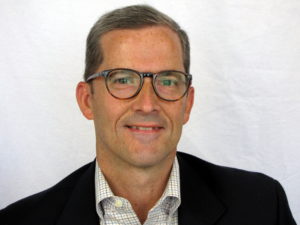Sales Director, Data Conversion Laboratory
 Please tell us a bit about yourself (e.g. hometown, current locale, course of study)
Please tell us a bit about yourself (e.g. hometown, current locale, course of study)
I grew up in Jersey City, NJ, before it became gentrified. Back then, it was a blue-collar town, and it seemed that every family in my mostly Irish and Italian neighborhood had at least 27 kids. The great thing about that was that when you went outside, there were always kids around to play with. I lived in Charlottesville, Va., for many years before moving to St. Louis last year, where my wife Doreen and I now have a blended family of 5 children (two are grown and on their own).
Describe some of your current responsibilities, and what type of organization you belong to.
I worked in publishing for over 20 years for companies like Raven Press (later Lippincott-Raven and then Lippincott, Williams, and Wilkins) McGraw-Hill, and Elsevier before moving over to the vendor side. I’ve worked in production, editorial, and digital product development. I’m now a sales director concentrating on publishing (makes sense, right?) for DCL. We work across a large swath of industries (publishing, financial services, pharmaceutical, government, etc.) to optimize content and data. It’s all about getting it into the right structure for its intended purpose (e.g., mobile delivery, migration to a new content management system, etc.) and future-proofing it for all uses.
What was your first scholarly publishing role? How did you get that job? What path led to your current position?
My first publishing job was as an editorial assistant at Plenum, which published hard-sciences journals and books. My duties included stamping every page of each manuscript with the journal title and manuscript number and estimating printed pages by counting the manuscript pages, the lines on each page, and then the words per line to determine the average (yes, it could be a bit tedious). We kept track of articles and issues with hard copy traffic sheets; this was the pre-computer age.
Despite the menial tasks involved, I enjoyed the job. It was there that I learned to size art with a pica ruler and a sizing wheel, a skill I never lost. Plus, it was my first New York City publishing job, and it was in SoHo; so it felt pretty cool. Publishing is sometimes called “the accidental profession,” because people tend to fall into it. That was definitely the case for me, but I chose to stay, and I’m glad I did.
If there was a pivotal moment or key person in your career development, please describe briefly.
Ed Barnas ran the journal production department at Raven Press (where I was a production editor), and he had a huge influence on my career. He was a real mentor in terms of encouraging me to see the big picture of scholarly publishing and how our jobs in production fit into the organizational whole. He wanted the people who reported to him to not only know their jobs well but to understand editorial, marketing, fulfillment, etc.; that helped me enormously and prepared me to move into management roles. By example, he also showed me how to absorb the chaos and pressure going on around us with equanimity and to remain even-keeled when communicating with the staff. He also encouraged me to join SSP, because he knew it would benefit my career.
I’ll also mention Bernie Richey, who became my manager after Lippincott and Raven merged. She really looked out for me as a new manager. She was very smart and savvy, and despite being rather direct and undiplomatic herself, she always encouraged me to remain diplomatic in my dealings with others.
What tools, web sites and organizations do you find most valuable for your career development?
Well SSP, of course, especially The Scholarly Kitchen, with all of its smart content and stimulating debate. And as a sales professional, LinkedIn is invaluable.
What are some of the surprises/obstacles that you’ve encountered during your career?
I’ve worked for many organizations, both large and small. At each stop, I’ve tried to learn something. It’s not really surprising, but working in a big, bureaucratic organization can be frustrating, because things often don’t move at the speed you want them to. That’s not to say there aren’t benefits associated with working for a large company, because there are many. Everyone has obstacles to overcome, and I’ve had my share, but no more than anyone else. Ultimately, overcoming them makes us better.
What do you wish you knew more about?
Blockchain. I know it’s a hugely important technology, but every time I try to read about it in detail, I lose my will to live.
What advice would you give to people interested in a career in scholarly communications?
Publishing as an industry (not just scholarly publishing) tends to attract smart people who like to read, like to write, and in general, people who are somewhat introverted. The good thing about that is if you are a bit of introvert, you’ll fit right in. And if you’re an extrovert, you’ll stand out. I would advise people to be curious, to find good mentors, and to always remember that what you’re doing adds value to the world. You’re helping to disseminate critical information and spreading knowledge.

